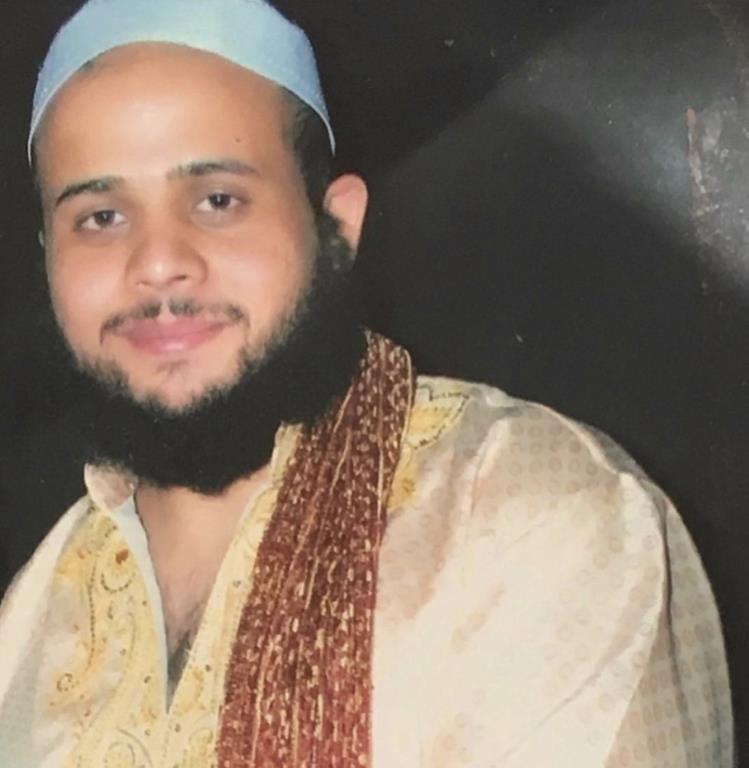TORONTO — A correctional officer who was called in to help restrain a mentally ill man at an Ontario jail told a coroner’s inquest Monday he didn’t know anything about the inmate or the reason for the struggle at the time.

Dave Surowiec said he was working in the admissions and discharge area when he responded to a code blue — a call for assistance — in a cell at the Central East Correctional Centre in Lindsay, Ont., on the afternoon of Dec. 15, 2016. After initially being sent on an errand, he was asked to replace one of the officers holding down the inmate, he said.
Surowiec said he could see an inmate face down on the floor of the cell, clearly struggling, surrounded by several officers who were urging him to calm down and stop resisting. The inmate’s hands were cuffed above his head, he had leg irons on and a spit hood, a type of face covering to prevent spitting or biting, the officer told the inquest.
Surowiec knelt beside the inmate and took control of his right arm, he said. Surowiec recalled seeing three sergeants at the scene and repeatedly asking for instructions.
“I’m in a situation where I have no idea who I’m dealing with, I have no idea the circumstances where we’ve reached to this point, I don’t know what precipitated anything,” he told the inquest.
- Mom and seven-year-old daughter from France killed in Old Montreal fire
- Garth Brooks sued by makeup artist for alleged rape, sexual assault
- Police say ‘we expect deaths’ in major fire in Old Montreal, investigation launched
- Montreal police probe whether incendiary materials tied to Middle East conflict
“All I know is I show up to take over for a tired officer and have basically no other information other than what I can see in front of me. So I don’t know the reason, I don’t know if this particular inmate has a weapon, I don’t know if he has struck an officer.”

Get daily National news
The officers were told to change the inmate’s position so his hands were cuffed behind his back, which they did without incident, he said. They were then told to disengage and leave a few at a time. Surowiec said he was the last one to touch the inmate before they left him alone in the cell.
The inmate, Soleiman Faqiri, died in his cell shortly afterward.
Faqiri was arrested in early December 2016 after allegedly stabbing a neighbour while experiencing a mental-health crisis. The inquest has heard that while correctional and medical staff expressed concerns about his deteriorating mental health, he never saw a psychiatrist while in custody, nor was he taken to hospital.
Jurors also heard Faqiri had been slapped, struck multiple times in the head area and sprayed twice with pepper spray foam the afternoon of Dec. 15, 2016, after correctional officers reported he spit at one of them while being escorted from a shower to his cell. The code blue was issued once they arrived at the cell.
Surowiec told the inquest Monday he “had no way of knowing” Faqiri had been sprayed with pepper foam. Later, under cross-examination, he said he didn’t see anyone put their knee on Faqiri’s neck, step on his neck, stomp on him, or use any force outside of guidelines.
In his questioning, coroner’s counsel Prabhu Rajan asked Surowiec if he was concerned about Faqiri’s health after repositioning the handcuffs, particularly since the man had been left face down.
“To be honest with you, it wasn’t really a thought at the time — everything was so chaotic,” Surowiec said, adding his priority at that time was to safely disengage from the situation.
As the officers left the cell, Faqiri “wasn’t struggling in any way anymore,” he said.
One of the sergeants, Dawn Roselle, then asked Surowiec if Faqiri was breathing, he recalled. Surowiec’s hand was on Faqiri’s back and he could feel it moving, so he told her yes, he said. He then left the cell, leaving Faqiri alone, he said.
At the time, he wasn’t concerned about the position Faqiri was left in, but in hindsight, Surowiec said he should have paid more attention given the risk of breathing difficulties.
Soon after, someone said Faqiri wasn’t breathing, so Surowiec and others rushed in and removed the cuffs, leg irons and spit hood, he said. Then nurses arrived and took over, he said.
Surowiec said he returned to his post in admissions and discharge, and only later learned that Faqiri had died.
He and several other staff members were put on administrative suspension pending investigation after Faqiri’s death, and Surowiec said he has spent the last seven years of his life thinking about that day. He suffered from post-traumatic stress disorder and depression, even suicidal thoughts at times, and had no support from his employer, he said.
“It was life-changing, life-altering, destructive, tragic, and it could have been handled so much better,” he said. “I can only imagine what the Faqiri family has gone through in all this.”











Comments